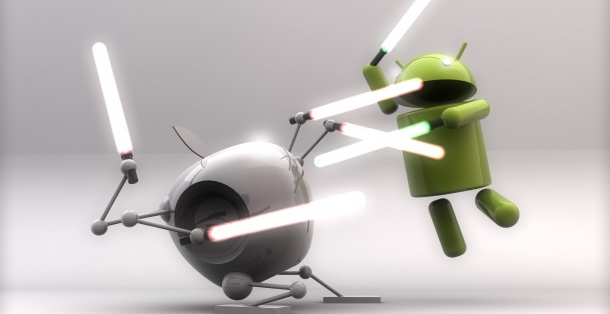You may have noticed that an iPhone and a Galaxy look and function alike. Oh, there are minor differences, but the products converge more than they diverge. Apple and Samsung have noticed too. That is why they have been at war for the last four+ years suing one another over patent infringement. The travail looks like culminating late this year at the highest court in the land.
The Supreme Court will hear the case between Apple and Samsung sometime in the fall. This is big. In legal terms, it can’t get any bigger. But what is it all about? A scanner of headlines deeply entrenched in the love of his brand might conclude that the battle is simply about why his company is better than the other. Go a layer deeper and you may conclude that the battle is about which company really was the innovator of a given feature. Go deeper still and you will find one party claiming that the other has a significant number of patents that shouldn’t be patents in the first place.
Each of these topics is significant, but the real issue concerns one small but potent aspect of patent law. As the law stands, if a company copies one feature of another company’s product, that company forfeits all the profit it made from the sale of its product. In plain language, if one feature on a Galaxy S7 copies a protected feature on an iPhone, even if that feature accounts for only 1% of Galaxy S7 sales, Samsung would still have to forfeit 100% of S7 profits. Since that’s their flagship model with a premium price, the loss would be devastating.
Why is this issue so important? It taps into the very purpose of our patent system, a system rooted in the Constitution. “Congress shall have power . . . to promote the progress of science and useful arts, by securing for limited times to authors and inventors the exclusive right to their respective writings and discoveries.” The patent system has a beautiful, even noble, purpose, i.e the “progress of science” and “useful arts.” Counterintuitively, it does so not by allowing the copying of inventions but by preventing it. Science and art progress when the inventor is safe. If a person invents something truly groundbreaking, a patent gives him the right to forbid others copying his work for gain. This serves as an incentive spurring the inventor to make breakthroughs.
However, every noble thing can be misused. The patent system must maintain a tricky balance. One the one hand, it gives incentive to inventors. On the other hand, it creates a sort of temporary monopoly, the inventor having total control over the use of his invention. Because patents grant a kind of absolute power, it is critical that they apply only to true breakthroughs.
Samsung’s contention is that many of Apple’s patents are illegitimate, minor features that common development would have produced. In patent language, the features are “obvious.”
The law of obviousness is a key component in patent law. If two things are similar, there can be only three causes of the similarity. If A and B are similar, either A caused B, B caused A, or a third factor, C, caused both A and B.
Let’s consider a concrete example. Both Samsung and Apple tablets have a beveled edge. When the tablets are lying face-up on a flat surface, you can slip your fingers under the tablet and easily pick it up because the bevel gives your fingers just enough room to leverage the device off the table. So, A (Samsung’s edge) and B (Apple’s edge) are similar. Now, there is no dispute about which came first. Apple’s beveled edge came first. B preceded A. But did B cause A? Did Samsung create their tablet with a beveled edge in imitation of Apple, or was there really no other way to make the edge and still have a tablet that could be removed from the coffee table? In other words, did C (common design sense) cause the beveled edge of both Samsung and Apple tablets? If so, the beveled edge is “obvious” and no patent should be granted.
Samsung claims that Apple has many such patents on obvious features, and, considering the total loss of profits due to infringement of these patents, Samsung also claims that the patent law as it stands is bad for innovation. Consider the kind of power a company can accrue if it gains many patents on obvious features. Innovators and startups will go from hesitant to paralyzed for fear of putting products on the market–especially when the penalty is a total loss of the profits gained by the product. Illegitimate patents bog down the innovative engine.
And what about patent trolls, companies that make a handy income doing nothing other than suing for extreme penalties against patent violation? Their job is to nit-pick patent law and make maximum profit out of sometimes very minor patents. If patent laws allow obvious features to be patented, patent trolling skyrockets while innovation crashes and burns.
So, the dispute between the two companies is not really about who is better. The material points between Samsung and Apple are as follows. Does Apple have a significant number of patents on obvious features, thus stifling innovation? And more specifically, should a company guilty of patent infringement lose all the profits or only a prorated amount of the profits gained from devices that use the copied feature?
